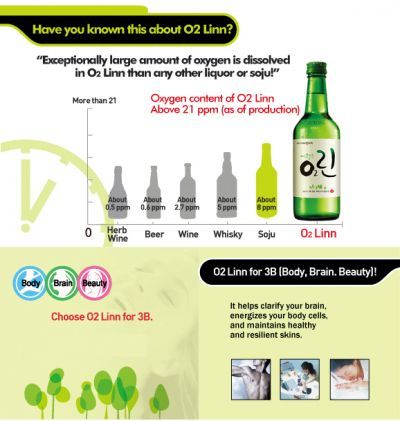Heavy on this may lead to lighter hangovers

Oxygen, it would seem, has an effect on the severity of hangovers. On March 1, a new study was published in Alcoholism: Clinical and Experimental Research, an academic journal, and researchers concluded that "enhanced dissolved oxygen concentrations in alcohol may reduce alcohol-related side effects."
Researchers at Chungnam National University in South Korea found that when healthy subjects drank "elevated dissolved oxygen concentrations in alcoholic drinks," the metabolism and elimination of alcohol increased faster (30 minutes) than without the oxygenation.
The study didn't prevent participants feeling drunk, only the duration of time the alcohol stayed in the body. Casey Johnston, contributor to Ars Technica, an art and technology news site, pointed out, "the process might produce a less-intense hangover, [but] oxygenated drinks that dissipate more rapidly won't exactly help customers get their money's worth."
It's unclear how oxygen-infused cocktails will be concocted, though one possibility may be that machines to oxygenate water will be used to transform well drinks into wellbeing drinks.
Koreans may have figured it out with O2 Linn, a new oxygenated soju (traditional distilled alcohol beverage usually from rice or sweet potato) drink that will still get you drunk (if that's what you want) minus the hangover. The company claims O2 Linn will "help clarify your brain, energize your body cells and maintain healthy and resilient skin." The campaign is "O2 Linn for 3B (body, beauty, brain) and has above 22ppm of oxygen in each bottle touting an "exceptionally large amount of oxygen is dissolved in O2 Linn than any other liquor or soju."
Here is a breakdown of oxygen ppm in various beverages according to O2 Linn's site:
Herb wine: 0.5ppm
Beer: 0.6ppm
Wine: 2.7ppm
Whisky: 5ppm
Soju: 8ppm
O2 Linn: 22+ppm
It is unclear when O2 Linn will be available internationally or if the researchers used O2 Linn during their study. Visit KoreaSoju.co.kr for more information on O2 Linn.
Study, "Influence of Dissolved Oxygen Concentration on the Pharmacokinetics of Alcohol in Humans": http://www3.interscience.wiley.com/journal/123305743/abstract?CRETRY=1&SRETRY=0
Join our commenting forum
Join thought-provoking conversations, follow other Independent readers and see their replies
Comments
Bookmark popover
Removed from bookmarks